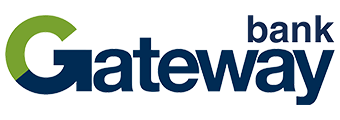
- Term deposits, like savings accounts, are covered under the government's $250,000 guarantee, called the Financial Claims Scheme.
- This means you have recourse in the unlikely event your bank collapses and you lose money - you will eventually get it back.
- This is offered to promote faith in the financial system and prevent lots of people withdrawing cash at the slightest hint of an economic hiccup.
- All authorised and licenced banks in Australia are covered - even small ones and ones with an international parent company.
- This makes it important when opening a term deposit to double check it's from a licensed provider, and isn't in fact some other product like a riskier investment.
What this means in practice is that your deposit is totally covered, as long as it's less than $250,000, in case the bank, building society or credit union folds. Thankfully bank collapses are rare events, so if you're looking at term deposits or a savings account, Australia is a safe place for them.
An example of how the guarantee works is to imagine that you have a term deposit worth $260,000 and the bank it's in collapses. You'll be able to claim back $250,000, but you'll have to say goodbye to $10,000.
The Financial Claims Scheme encompasses not only term deposits, but savings accounts, transaction accounts, and offset accounts. This means if you have all your banking with, say, CommBank, and you have $20,000 in your savings account and $10,000 in a transaction account, that leaves up to $220,000 coverage if you open a term deposit.
However, that applies per account holder - if you and your spouse open a joint account, you're covered collectively up to $500,000. Be aware, too, that some banks share banking licences - for example NAB and ubank; and Westpac and Bank of Melbourne, BankSA, and St George.
Put Your Eggs in Different Baskets
If you have much more than $250,000 to invest, then you're probably wisest to split your money between different deposits and preferably different banks. Limit your deposits to less than $250,000 each so that you don't risk losing a cent if your bank collapses.
It's important to use different institutions because if you have two term deposits of, say $200,000 each in one bank, you may only get one deposit back if there's a collapse.
Looking to see what different term deposit providers are out there? Compare a range of genuine ADIs and banks below.
| Bank | Term Deposit | Interest Rate | Interest Frequency | Term | Automatic Rollover | Maturity Alert | Early Withdrawal Available | Minimum Deposit | Maximum Deposit | Notice Period to Withdraw | Account Keeping Fee | Online Application | Joint Application | Tags | Features | Link | Compare | Promoted Product | Disclosure |
|---|---|---|---|---|---|---|---|---|---|---|---|---|---|---|---|---|---|---|---|
3.80% p.a. | At Maturity | 6 months | $5,000 | $10,000,000 | – | – |
| ||||||||||||
4.40% p.a. | At Maturity | 6 months | $1,000 | $1,000,000 | – | – | |||||||||||||
4.00% p.a. | At Maturity | 6 months | $25,000 | $10,000,000 | – | – | |||||||||||||
4.25% p.a. | At Maturity | 6 months | $5,000 | $500,000 | – | – | |||||||||||||
4.40% p.a. | At Maturity | 6 months | $1,000 | $1,000,000 | – | – |
How The Government Guarantee Actually Works
The Government Guarantee covers consumer (you) deposits of up to $250,000 with ADIs under its Financial Claims Scheme (FCS). So, in practice, if your bank, credit union or building society collapses, the government brings the FCS into play, you submit a claim and APRA pays you up to $250,000 for each different account or deposit.
Thankfully, Australian bank collapses are a rare creature, with most banks being incredibly safe.
You can have as many term deposits as you want, but to make the most of the FCS, you're best advised to have one term deposit per ADI. By separating your deposits into different institutions, each one is covered up to the $250,000 cap; you'll also be able to take advantage of different term deposit and savings account rates.
It's important to remember, though, that some of Australia's ADIs have different brand names, so you might think you're using a different bank but in fact you're not. If you make this mistake and deposit two funds with these two seemingly separate institutions, then you might only be able to claim for one if there's a collapse.
Authorised Deposit-Taking Institutions (ADI) Explained
An Authorised Deposit-taking Institution, or ADI, is a financial institution that has a special licence. The Banking Act of 1959 decreed that banks and similar institutions had to have a licence authorising them to accept deposits from the public. Institutions must be an ADI to offer:
-
Savings and transaction accounts
-
Cash management accounts
-
Mortgage offset accounts
-
Chequing accounts
-
Pension redeeming accounts, and
-
Term deposits
Any institution that wants to become an ADI has to satisfy the conditions of the Australian Prudential Regulation Authority, or APRA. This authority grants licences to institutions and then monitors and regulates them, according to the Banking Act.
APRA's current chairman is John Lonsdale (pictured above).
Using ADIs Gives You Security and Peace of Mind
You know it's not likely to happen, but sometimes when there are dire news reports about the global economy, you might feel a slight prickle of anxiety about your investments. With an ADI, you don't really need to worry.
Term deposits, in particular, are stable investments because if you look at the difference in term deposits versus savings accounts, you'll see the interest rate stays fixed for your term regardless of the cash rate or other market fluctuations.
Smaller Banks Can Be ADIs Too
Lots of smaller banks, not just the Big Four, have ADI licences. Credit unions, regional banks and building societies can also be ADIs. If you want to know whether an institution that you're thinking of opening a term deposit or any other savings account with, check out the APRA website to see if it's one of the 140-plus registered ADIs.
Foreign banks can be ADIs as well. So your deposits are backed regardless of whether it's true blue Aussie CommBank, or a bank like ING, which is Dutch-owned. As long as it has an Aussie banking licence and the product you're signing up to is Australian, you're covered.
Should You Use an Institution if It's Not An ADI?
Financial institutions can offer financial products even if they're not an ADI. Not having an ADI licence just means they can't provide banking services, like taking deposits. These types of institutions are called non-ADIs and examples include:
-
Broker-dealers, who borrow money from and lend money to large conglomerates and even governments
-
Finance providers who offer loans like mortgages, personal loans or car loans to individuals, households or small enterprises, and who source their funding from wholesale markets rather than from consumer savings deposits, and
-
Securitisers, who issue securities that are backed by guarantees that they borrow from third-party providers.
-
Non-bank lenders can offer competitive car loans and home loans but can't offer genuine offset accounts. They can, however, offer other features like redraw facilities.
These non-ADI institutions simply can't offer term deposits as they can't take deposits from consumers. However, if you're looking for a home loan or a car loan, then you can approach these bodies, because they're still bound by the Consumer Credit Code.
This code means that they have to be fully transparent about fees and interest rates with their borrowers. In order to compete with the banks, especially the bigger ones, lots of smaller lenders offer good rates and terms, so it's worthwhile checking them over.
Be aware, too, that some institutions offer products promising 'steady' or 'safe' returns with attractive interest rates that look and feel like a term deposit. If they're not a genuine bank or ADI, chances are the product is an investment of some kind, which carries extra risks and is not covered by the $250k guarantee. So tread carefully.
Is It Vital To Always Go With An ADI?
You can't legally obtain a savings account or term deposit from an institution that's not an ADI. However, you should always check any new or unfamiliar institution to see if it's licenced before giving it any of your money, just to be on the safe side.
If you're planning to borrow money, then you don't necessarily have to stick with an ADI, because home loans, car loans and personal loans aren't classed as banking products.
Banks and Credit Unions Covered Under the $250,000 Guarantee
The good news is all institutions registered as an Authorised Deposit-taking Institution (ADI) are covered. If you have a deposit with a company purporting to be a bank and it is not an ADI, you will not be covered; it is illegal to market as a bank and not actually have an ADI.
Covered institutions, as well as their subsidiaries, include:
-
Alex Bank Pty Limited
-
AMP Bank Ltd
-
Arab Bank Australia Limited
-
Australia and New Zealand Banking Group Limited
-
Australian Military Bank Ltd
-
RSL Money
-
-
Australian Mutual Bank Limited (trading as Endeavour Mutual Bank and Sydney Mutual Bank)
-
Australian Settlements Limited (provides industry services)
-
Australian Unity Bank Limited
-
Auswide Bank Ltd
-
Queensland Professional Credit Union Ltd
-
-
Avenue Bank Limited
-
B&E Ltd (trading as Bank of us)
-
Bank Australia Limited
-
Bank of China (Australia) Limited
-
Bank of Queensland Limited
-
BOQ Specialist (BOQS)
-
ME Bank
-
-
Bank of Sydney Ltd
-
Bendigo and Adelaide Bank Limited
-
Adelaide Bank
-
Bendigo Bank
-
Rural Bank
-
Up Bank
-
-
Beyond Bank Australia
-
AWA Alliance Bank
-
Nexus Mutual
-
-
BNK Banking Corporation Limited (previously Goldfields Money Limited)
-
Goldfields Money
-
-
Cairns Penny Savings & Loans Limited (trading as Cairns Bank)
-
Central Murray Credit Union Limited (trading as Central Murray Bank)
-
Central West Credit Union Limited
-
Coastline Credit Union Limited (Trading as Coastline Bank)
-
Commonwealth Bank of Australia
-
Bankwest
-
-
Community First Credit Union Limited
-
Community First Bank
-
Easy Street Financial Services
-
Illawarra Credit Union
-
-
Credit Union Australia Ltd (trading as Great Southern Bank)
-
Credit Union SA Ltd
-
Cuscal Limited (provides industry services)
-
Defence Bank Limited
-
Dnister Ukrainian Credit Co-operative Limited
-
Family First Credit Union Limited
-
Family First Bank
-
-
Fire Service Credit Union Limited
-
First Option Bank Ltd
-
Ford Co-operative Credit Society Limited (trading as Geelong Bank)
-
Gateway Bank Ltd
-
Goulburn Murray Credit Union Co-operative Limited
-
Heartland Bank Australia Limited (previously Challenger Bank Limited / MyLifeMyFinance Limited)
-
Heritage and People's Choice Limited
-
Heritage Bank
-
People's Choice Credit Union
-
People First Bank
-
-
Horizon Credit Union Ltd (trading as Horizon Bank)
-
HSBC Bank Australia Limited
-
Hume Bank Limited
-
IMB Ltd (trading as IMB Bank)
-
The Shire
-
-
in1bank Ltd
-
Indue Ltd
-
ING Bank (Australia) Limited (trading as ING)
-
Judo Bank Pty Ltd
-
Laboratories Credit Union Limited
-
MacArthur Credit Union Ltd (trading as The MAC)
-
Macquarie Bank Limited
-
Maitland Mutual Limited (trading as The Mutual Bank)
-
Members Banking Group Limited (trading as RACQ Bank)
-
MyState Bank Limited
-
National Australia Bank Limited
-
Ubank
-
-
Newcastle Greater Mutual Group Ltd
-
Newcastle Permanent
-
Greater Bank
-
-
Norfina Limited (trading as Suncorp Bank)
-
Northern Inland Credit Union Limited
-
Orange Credit Union Limited (trading as Bank Orange)
-
Police Bank Ltd (trading as Border Bank and Bank of Heritage Isle)
-
Police Credit Union Limited
-
Police Financial Services Limited (trading as BankVic)
-
Police & Nurses Limited (trading as P&N Bank, and BCU Bank)
-
QPCU Limited (trading as QBANK)
-
Queensland Country Bank Limited
-
Rabobank Australia Limited
-
Railways Credit Union Limited (trading as MOVE)
-
Regional Australia Bank Ltd
-
South West Slopes Credit Union Ltd (trading as SWSBANK)
-
Southern Cross Credit Union Ltd
-
Summerland Financial Services Limited (trading as Summerland Credit Union)
-
Teachers Mutual Bank Limited (trading as Firefighters Mutual Bank, Health Professionals Bank, Teachers Mutual Bank and UniBank)
-
The Broken Hill Community Credit Union Ltd (trading as Broken Hill Bank)
-
The Capricornian Ltd
-
Traditional Credit Union Limited
-
Transport Mutual Credit Union Limited
-
Tyro Payments Limited
-
Unity Bank Limited (trading as G&C Mutual Bank and Reliance Bank)
-
Victoria Teachers Limited (trading as Bank First)
-
Warwick Credit Union Ltd
-
Dalby Credit Union
-
Gympie Credit Union
-
Darling Downs Bank
-
-
WAW Credit Union Co-Operative Limited
-
BankWAW
-
-
Westpac Banking Corporation
-
Bank of Melbourne
-
BankSA
-
St George Bank
-
-
Woolworths Team Bank Limited
Photo of John Lonsdale supplied by APRA




